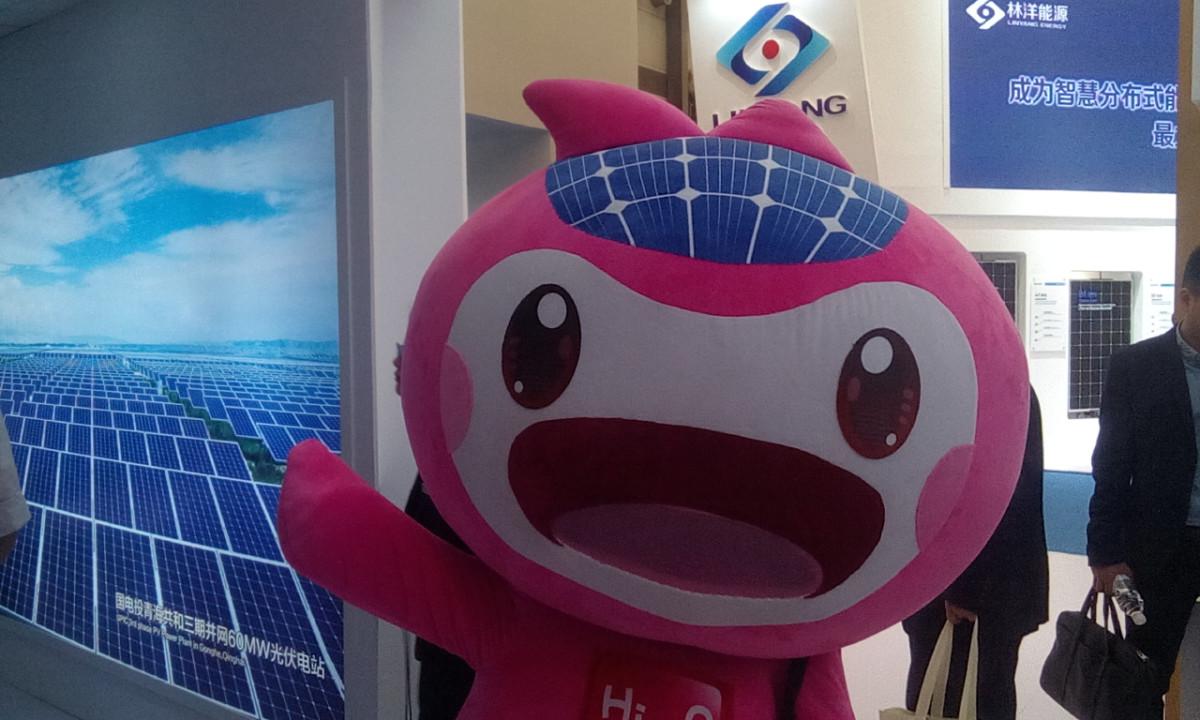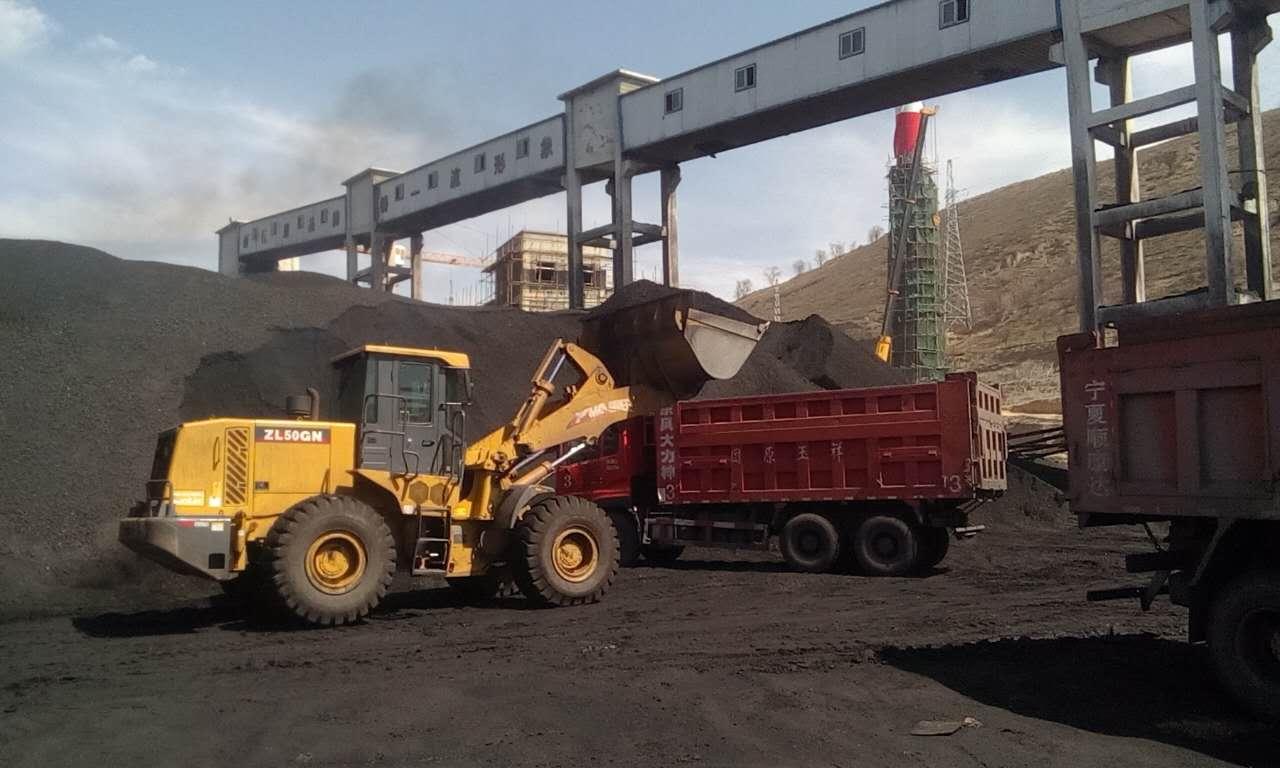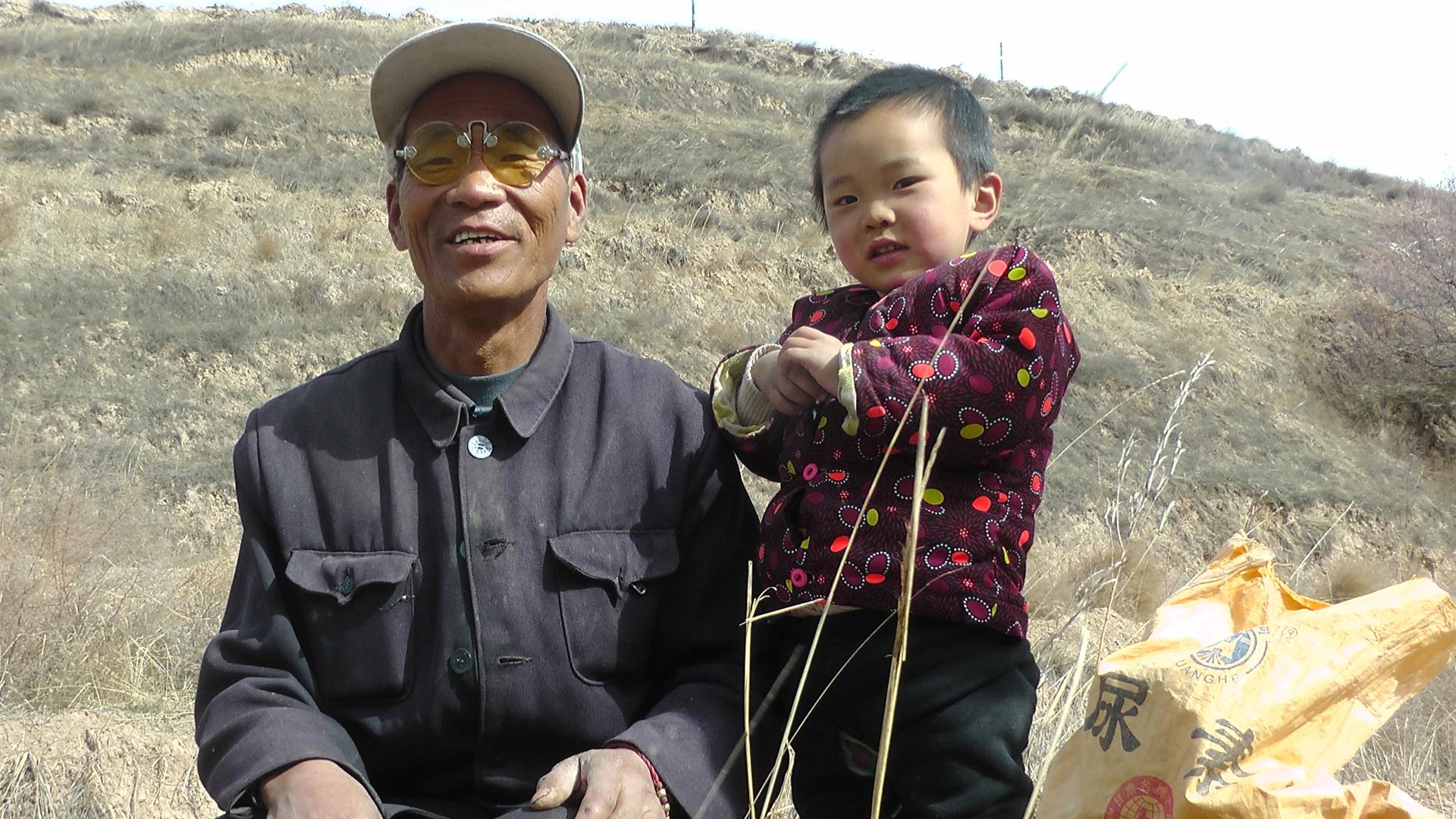China retools its dirty economy for a greener future
In the parched county of Pengyang, farmer Mi Zhangzhong says a local tree-planting campaign has helped bring more rain.
China’s no stranger to the impact of climate change.
In the western Ningxia Hui Autonomous Region, bordering the Gobi desert, over the past half century the temperature has risen on average 2.2 degrees celsius — nearly four degrees fahrenheit. That’s a bigger temperature rise than the two-degree centigrade increase scientists warn is a global tipping point, and should be the cap by the end of the century.
The poorest regions are being squeezed by drought and extreme weather events.
In response, the province is taking drastic measures. It’s relocating over a million farmers — more people than live in Austin, Texas. They are leaving behind villages where water is scarce and moving to new communities, some fed by water piped in from the Yellow River.
In a valley in the parched county of Pengyang, etched with terraced hills, 58-year-old farmer Mi Zhangzhong says a local tree-planting campaign has made a difference.
“When we planted more trees, we got more rain. When it rains more, it gets cooler,” he said, as his young grandchildren played nearby.
In China, climate change is no hoax — and not a future threat. It’s impacting lives today. And the fear is it will become much more socially disruptive in years to come.
That’s one of the reasons, says Hu Min, the executive director of the non-profit Innovative Green Development Program, why the Chinese government is doing an about face on climate change policies.
“When I started 14 years ago, it was the time when ‘climate change’ the word was not politically correct. It was mainly finger pointing between developing country and developed country, and who’s supposed to take more actions.”
In 2007 China became the world’s number one emitter of greenhouse gasses.
The growing middle class started clamoring for a cleanup of the choking air pollution that regularly turns the skies of Beijing a murky yellow and variegated shades of grey.
The national leadership also wanted to shift the economic structure away from dirty, low-paying industrial jobs, in favor of cleaner, better paid ones. That’s why the government began to nurture rising industries like solar and wind so it would have a chance to compete in the global marketplace.
Renewable energy industries have been creating a lot of jobs, says Humin, and “those jobs are high-value jobs,” compared with coal mining.

Professor Shen Wenzhong has watched the exhibition grow from a tiny offshoot of an academic conference he organized in 2005. He says now, any company that is anyone in solar attends.
“Right now, China has the biggest photovoltaic manufacturing in the world, also the biggest photovoltaic market in the world,” he says.
Among the 1800 exhibitors, there were about two dozen American companies.
Mark Ma is global marketing manager for Dupont’s photovoltaic business. Not too long ago, solar was seen as pie-in-the-sky, because it was too expensive. But that, too, has changed.
“In a lot of areas it’s already very competitive, like in California,” Ma said. Ma and others predict that by 2020, solar will be economically competitive in many countries.
The advances are in part due to strong government support for research. According to Professor Shen, the Chinese government’s investment in solar research has far outpaced and outspent that of the US. In fact, he says, the generous funding has enticed many Chinese researchers working in the US to repatriate.
Like the US, China faces resistance from the coal industry. But the government, whose state-owned industries are the major player in the energy industry, is taking steps to address the concerns.
China’s government is currently in the midst of a three-year program to shutter 4,300 mines.

Last year, miners took to the streets over unpaid wages, and the government was forced to come up with a special $15 billion assistance fund. In recent years coal production has plateaued, and China is in the midst of a plan to cut 1.3 million coal mining jobs.
Coal analyst Jenny Huang of the Fitch ratings agency says the government has various schemes for redeploying redundant workers.
“Coal prices collapsed in 2015. That made the central government step in to provide some supportive policies because industry-wide failure could create social problems in these areas,” she says.
In one area in northern China, 40,000 coal workers are now working in agriculture. Elsewhere, former coal miners have become drivers for the Chinese version of Uber. And a delivery company says many of its employees are workers who have lost jobs in the industrial sector. In general, these new jobs are safer and pay better.
But the emerging economic model that involves more consumerism, more cars, and more services suggests new sources of greenhouse gases are building up. Three years ago, China’s carbon emissions per capita overtook Europe’s.
Ni Huan, a senior adviser at the World Wide Fund for Nature, is concerned the Chinese public is too blasé about climate change.
“I think some of rising middle class in China, they don't care about the environment. They don't care about climate change,” she says.
Disillusioned by adults, Ni Huan started a grassroots organization called Green Light Year to raise awareness among kids about how to live a low-carbon lifestyle. She has turned her small apartment into a low-carbon demo home. In her tiny sliver of a garden, she generates electricity with a solar panel, and has an aquaponics garden with lettuce, mint and chives, all floating in fish tank water nourished by fish poop.
Since 2015, she’s had 2,000 visitors. On a spring day, teachers from a nearby elementary school brought their class for a tour. The students are surprised when Ni tells them the state electric company pays her when she generates extra power. And they're impressed when she explains the significant financial incentives she received for buying an electric car.
China is already the largest manufacturer of electric vehicles. And the government is now proposing requiring auto manufacturers to have 12 percent of total auto sales be electric or hybrid vehicles within three years.
Ni Huan says government incentives for government officials who want promotions used to be based on economic growth. Now their environmental record also counts.
“That’s why a lot of government officials came to visit my home to see what exactly can be done at the grassroots community, and how to reduce the carbon footprint.”
But it’s still unclear how much of a global leadership role China will take on.
Regardless of whether China opts to use its diplomatic muscle to encourage other countries to go green, policies are already achieving this. So says the Beijing-based researcher Anders Hove of the Paulson Institute, which promotes low-carbon economic programs in China and the US.
“In the long-term the biggest impact of China on the climate issue has been China’s taking leadership on renewable energy,” says Hove. “When the cost of these energy systems fell, partly due to the scale-up of wind and solar power in China, that has a huge impact on the rest of the world because it has essentially made these technologies cost competitive with fossil fuels."
He says China has essentially changed the name of the game for the global discussion on climate change.
Soon the so-called energies of the future will be the energies of today. And at that point, Hove says, instead of bickering over who pays for reducing pollution, everyone will be busy installing clean sources of power simply because they make economic sense.
The story you just read is accessible and free to all because thousands of listeners and readers contribute to our nonprofit newsroom. We go deep to bring you the human-centered international reporting that you know you can trust. To do this work and to do it well, we rely on the support of our listeners. If you appreciated our coverage this year, if there was a story that made you pause or a song that moved you, would you consider making a gift to sustain our work through 2024 and beyond?
